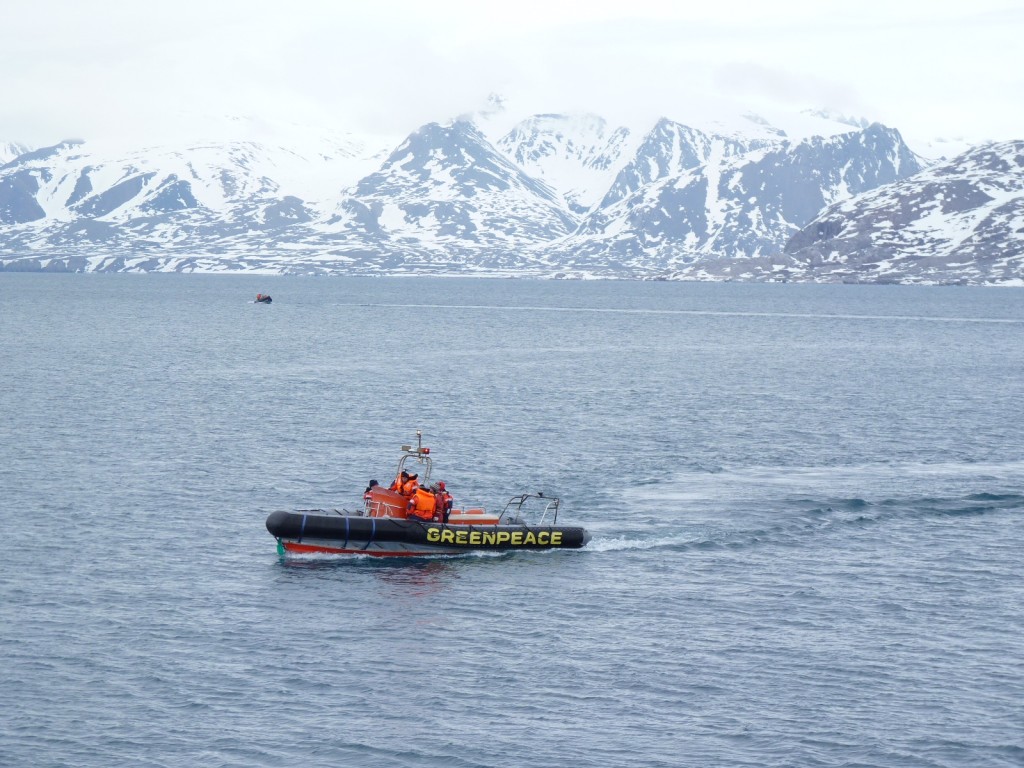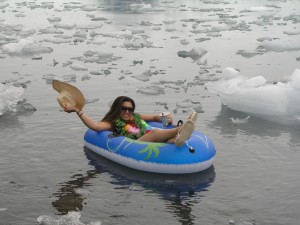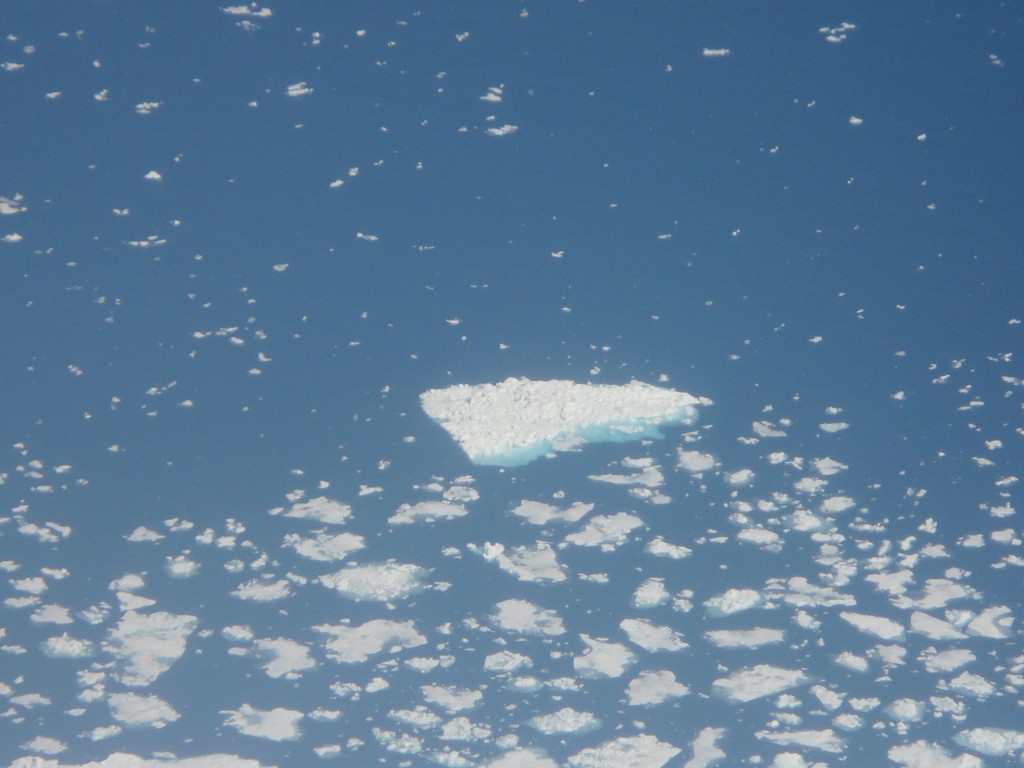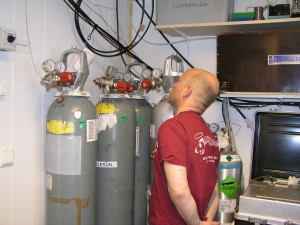Search Results for Tag: CO2
Ex-IPCC chief: 5°C warming?
The former chair of the Intergovernmental Panel on Climate Change says global average temperatures could reach five degrees centigrade above their pre-industrial level. British scientist Sir Robert Watson, who chaired the panel from 1997 until 2002, said the world had missed its chance to keep emissions below the level needed to keep to the 2°C maximum target set by the international community.
Speaking at a symposium on “Preventing global con-communicable diseases through low-carbon development” at the London School of Hygiene and Tropical Medicine, (LSHTM), Professor Watson said the chances of keeping temperature rise below three degrees are fifty-fifty, and the rise could be as high as five degrees. That would mean the Earth warming more than it has since the end of the last Ice Age. The consequences for the planet would be dramatic.
In a report for the “Climate News Network”, environment reporter Alex Kirby quotes Watson as saying: “All the promises in the world, which we’re not likely to realise anyway, will not give us a world with only a 2°C rise. All the evidence, in my opinion, suggests we’re on our way to a 3°C to 5°C world.”
The British expert is science director of the Tyndall Centre for Climate Change Research at the University of East Anglia, UK, and chief scientific adviser to the UK Government’s Department of Environment, Food and Rural Affairs. He says there are solutions available to tackle climate change, but a lack of political will and moral leadership to implement them. Emissions are continuing to rise at a rate which makes it highly unlikely the two degree target can be adhered to.
“When I was chairing the IPCC we were all very optimistic that we’d have a global agreement to limit emissions, though we knew it would be difficult. But we were hopeful that emissions would not go up at the tremendous rate they are rising now,” says Watson.
More on this story at Climate News Network
Climate talks too slow for Antarctic sea snails

The pteropod, (marine snail) Limacina hilicina antarctica, Photo: Nina Bednarsek
While the climate negotiations continue at a snail’s pace in Doha, marine snails or pteropods in the Antarctic are losing their shells because of ocean acidification. Researchers from the British Antarctic Survey (BAS) and partners have published the first evidence of ocean acidification affecting live marine creatures in the Southern Ocean. Ocean acidification is caused by the uptake of carbon dioxide from the atmosphere emitted as a result of fossil fuel burning.
![]() read more
read more
Rio 20 years on – and where’s the climate now?

Greenpeace is regularly out and about in the Arctic, here off Spitzbergen. No wonder the activists are disappointed with Rio so far
I’ve just been working on an article on the record high CO2 concentration measured in Arctic Alaska in May. And it really brings it home to me that since the famous Earth summit in Rio in 1992 set the alarm bells ringing and the wheels in motion to tackle climate change – we have not really achieved very much. Now I am generally an optimistic person, but given that CO2 emissions were up again in 2011, the UN climate secretariat is still struggling to get countries on board for a Kyoto follow-up agreement, the USA still resists any binding targets and China and the other emerging countries are understandably unwilling to compromise their development to start solving a problem we industrialised countries caused – it is hard to work up enthusiasm for the Rio meeting. Copenhagen showed us all what can come of having expectations that are too high. Basically, the draft declaration from the meeting (sometimes I think it makes a bit of a farce of the huge meetings themselves that the draft has to be ready beforehand, but I understand the political and economic realities behind this) has already polarised response: on the one hand, the politicians who (have to?) say they would have liked more but we are lucky to get even this meagre document, on the other the ngos and activists who have expressed huge disappointment or even disgust. Let me give you a short quote from Kumi Naidoo’s blog, he’s executive director of Greenpeace International:
“The Future we Want is nowhere to be found in the already agreed Rio+20 outcome text, which world leaders are now rubber stamping and Greenwashing. The spin cycle has begun. At the same time some 20,000 people marched on the streets of Rio in protest with an air of despair but clinging to hope.”
Let’s keep hoping…
Arctic CO2 hits alarming levels
Worrying news from scientists in the USA monitoring the global CO2 concentration. NOAA (The US National Oceanic and Atmospheric Administration) says for the first time ever, more than 400ppm (parts per million) have been measured in the atmosphere in the Arctic. This is a very worrying development. Jim Butler, who’s in charge of global monitoring at NOAA, says this should be a reminder to everybody that we are in deep trouble. CO2 concentration has been rising increasingly fast. 350 ppm is the figure many scientists say is the highest the earth can go without being in danger from drastic climate change.
So far, it’s only the Arctic – which is heating up around twice as fast as the rest of the planet – where the 400pm mark has been reached. The average is around 395ppm for the rest of the world. But the NOAA researchers – not known for exaggeration I’d say – say the 400 mark will be reached in just a few years.
Bearing in mind the lack of progress in international negotiations, with a report recently published indicating we’re heading for a 3.5 degree C rise in global temperature, way above the 2° target set by the international community, it’s hard to see how we are going to turn this around. And, as Professor Mojib Latif, one of the IPCC lead authors and a renowned meteorologist and climate expert, reminded me just last week, even those 2° would be a major challenge and unprecendented for the earth.
NASA scientist for carbon tax to tackle “moral issue”of climate change
Spending a few days in Scotland over Easter, I was interested to read that the NASA climate scientist James Hansen is to be awarded the prestigious Edinburgh Medal for his contribution to science. The Guardian quotes Hansen, 70-year-old director of NASA’s Goddard Institute for Space Studies and one of the longest-standing experts on climate change, as saying “averting the worst consequences of human-induced climate change is a great moral issue on a par with slavery”.
![]() read more
read more























Feedback